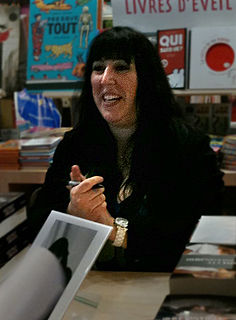A Quote by Michael Ignatieff
I'd always admired the intellectuals who had made the transition into politics - Mario Vargas Llosa in Peru, Vaclav Havel in the Czech Republic, Carlos Fuentes in Mexico - but I knew that many of them had failed, and in any event, I wasn't exactly in their league.
Related Quotes
I knew that Vaclav Havel didn't want to look into people's eyes, because he said that, when he was being interrogated during the communist period and had been taken to jail, that, if you look directly into somebody's eyes, they can persuade you. And so you can see that so clearly in this interview, where he's looking down.And I kept saying to him as we kept coming - came over here: " You have to look up."And I clearly had no influence on him.
Vaclav Havel was a really popular leader. He couldn't believe that he was really there. I mean, he still dressed in black T-shirts and jeans and was very kind of '60s. And he began to realize the seriousness of it. And he knew how to strategize. And he had a very keen political sense, but he didn't want to be like the old communist leaders.
I regret that I had to leave my country. But I had to do it in order to achieve and decide my own fate. I was forced into it. Democracy came about 15 years too late for me. But I have to say that it's there now, and Czech Republic is a fantastic country; it always was but just had the wrong regime at the top.
Incidentally, I am intrigued by how many European and Latin American writers expressed their political views in the columns they routinely wrote or write in the popular press, like Saramago, Vargas Llosa, and Eco. This strikes me as one way of avoiding opinionated fiction, and allowing your imagination a broader latitude. Similarly, fiction writers from places like India and Pakistan are commonly expected to provide primers to their country's histories and present-day conflicts. But we haven't had that tradition in Anglo-America.




























